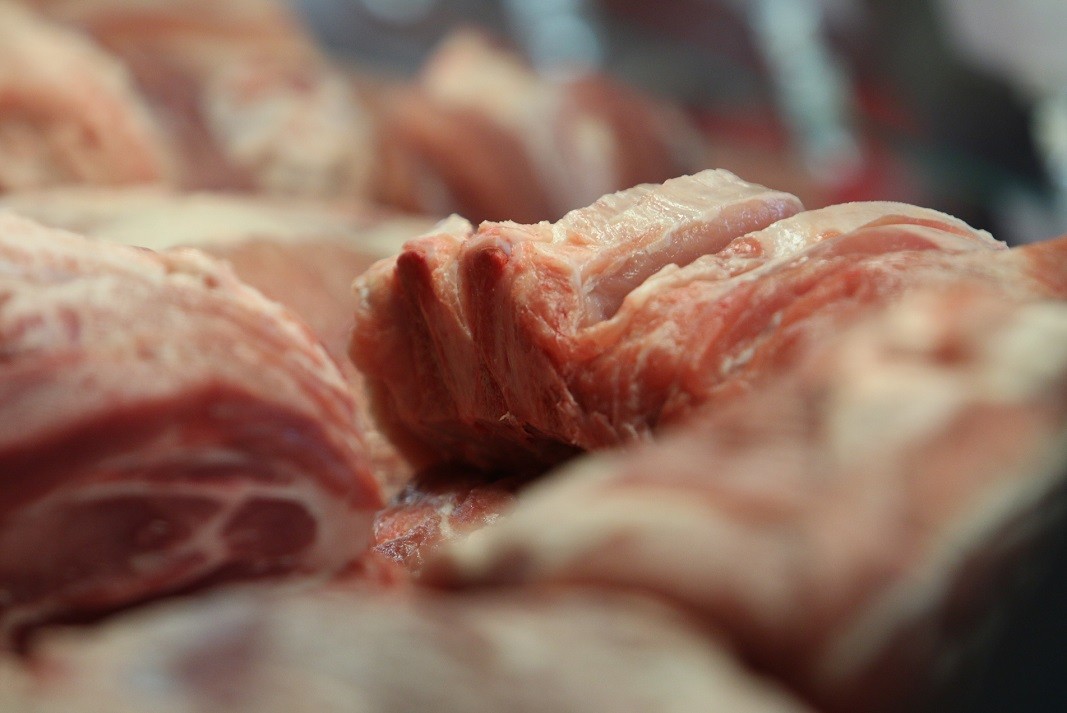Almost all meat products sold on Bulgaria’s market are imported from other European countries. Bulgaria imports pork mainly from Germany and Denmark, which are Europe’s largest pork producers. Big quantities of pork are also imported from Spain, Belgium and the Netherlands. This is so, because meat consumption in Bulgaria exceeds domestic production. In 2020, Bulgaria produced a total of 20,316 tons of red meat, or 15.4% less as compared to the previous year, data of this country’s Ministry of Agriculture, Food and Forestry indicate. Production of pork meat decreased by 40.2% and accounts for 9.9% of the meat produced in Bulgarian farms.
According to farmers, pig farming in Bulgaria collapsed after the mass culling caused by the African Swine Fever. In addition, farmers are facing other impediments such as high electricity bills, expensive grain and forage, which form more than 70% of the price of pork in Bulgaria. “The price of grain has gone up, because of the grain shortage. The Bulgarian market is flooded by imported pork from the EU. As a result, the price of pork dwindled significantly and domestic producers are suffering substantial losses”, pig farmer Vihren Dimitrov from Ruse district said for the BNR.

Why, however, end consumers cannot feel the price decrease?
“Prices of domestic and imported pork are different, but when the product goes through wholesale dealers and resellers, the price difference is not that obvious anymore”, Vihren Dimitrov explained and added:
“Wholesale dealers can buy live pigs for EUR 1 per kilogram and pork carcass for EUR 1.80- EUR 1.85. Thus, we are suffering losses from every single kilogram of meat and we cannot rely on any protection mechanism. My colleagues are closing farms or reducing the number of their animals significantly. We can help ourselves if we start selling our meat directly to the end consumers.”
In an address to the National Association of Municipalities and the mayors of small towns and villages, Vihren Dimitrov called on the municipalities to inform their residents that Bulgaria’s pig farmers are able to deliver Bulgarian pork meat to every Bulgarian town and village at competitive prices.
“We can deliver pork meat to the villages, as many village residents are unable to go to the nearby town and buy expensive pork. On one hand, the selling price covers our costs. On the other hand, we are not suffering losses”, explains Vihren Dimitrov.
Pig producers are adamant that their initiative does not contradict the veterinary regulations.
Some mayors reject the idea saying they are not a meat shop. Others, however, gladly embrace the idea. On the other hand, pig producers are hoping to preserve their farms.
“Domestic pig producers manage to provide only 20% to 30% of the pork meat sold in Bulgaria. No one is protesting when cargo vehicles loaded with imported pork from Germany or Spain supply meat to the large food retailers. When the coronavirus pandemic broke out, the idea to give priority to local production remained a wishful thinking only. Profits get into the pockets of foreign traders and the local producers go bankrupt. What would happen if Bulgaria is left without domestic produce?” Vihren Dimitrov asked.
Compiled by: Darina Grigorova (interview by Veselina Milanova, BNR-Horizont)
English version: Kostadin Atanasov
Photos: library, BGNES , EPA/BGNES120,000 people employed in coal-fired power plants are at risk of losing their jobs and are facing emigration, warn experts from the Podkrepa Confederation of Labour . Regarding the Green Deal, trade unionists exchanged experience with their..
The state of the Bulgarian labor market at the end of 2023 points to a tendency towards stagnation. This is the conclusion of an analysis of the Institute for Market Economy. As of mid-2021, the unemployment rate remains in the..
The German company Kayser Automotive will invest in a production facility for components such as piping systems, valves and tank parts in Pleven, Bulgarian Property Developments (BPD) said. The amount of the investment was not disclosed. The factory..
MPs have agreed to extend the 0% VAT on bread and flour, which was due to expire on June 30, until the end of 2024. Under the GERB proposal, traders will..

+359 2 9336 661
